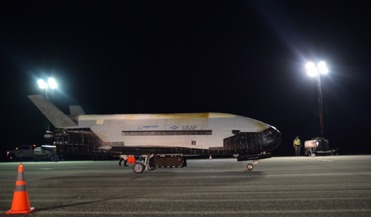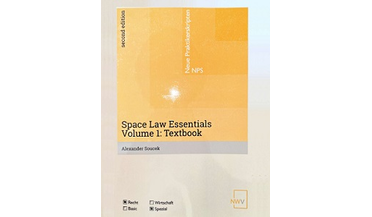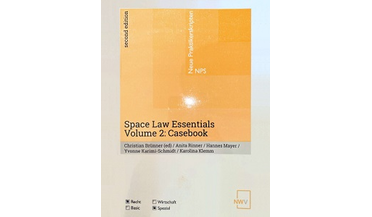 30 October 2019
Questions surround US top-secret spaceplane mission
30 October 2019
Questions surround US top-secret spaceplane mission
... the UN in 1974, the Convention is based on the 1967 Outer Space Treaty, which is regarded as the basic international law of space, and requires that all objects launched into space must be registered “to the greatest extent feasible and practicable...
 25 September 2020
The Consequential Frontier - Challenging the Privatization of Space
25 September 2020
The Consequential Frontier - Challenging the Privatization of Space
...book looks at the evolution of space towards privatisation, with agencies as ...space privatisation, space tourism, space law and the space environment have been written by space professionals keen to highlight the inadequacies of the Outer Space Treaty...
 January 2017
Elon Musk and Mars - looking for a snowball effect
January 2017
Elon Musk and Mars - looking for a snowball effect
...even be legal. She suggested that, under the Outer Space Treaty, any Martian colonists would be regarded as “squatters, or... main steps should be obvious enough: A build-up of commercial space tourism to hotels in low Earth orbit. Between 2001 and 2009...
 29 March 2018
China's Tiangong-1 space lab is destined for Earth, soon!
29 March 2018
China's Tiangong-1 space lab is destined for Earth, soon!
... spoiling your enjoyment of the find. Secondly, according to the Outer Space Treaty of 1967, which provides the basic framework on international space law, a country’s space object is their legal property. Therefore China still has claims to it, even...
 03 August 2021
Space Law Essentials, Volume 1: Textbook, Second Edition
03 August 2021
Space Law Essentials, Volume 1: Textbook, Second Edition
..., introduces the reader, in a unique and innovative way, not only to the fundamentals of space law (the UN space treaties, the resolutions of the General Assembly or the principles of space law) but also to more specific issues, such as the elements...
 03 August 2021
Space Law Essentials, Volume 2: Casebook, Second Edition
03 August 2021
Space Law Essentials, Volume 2: Casebook, Second Edition
..., introduces the reader, in a unique and innovative way, not only to the fundamentals of space law (the UN space treaties, the resolutions of the General Assembly or the principles of space law) but also to more specific issues, such as the elements...